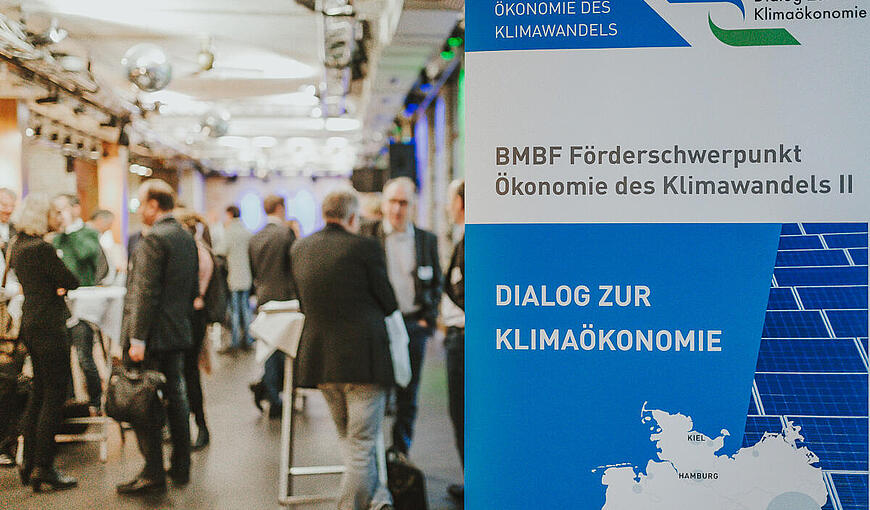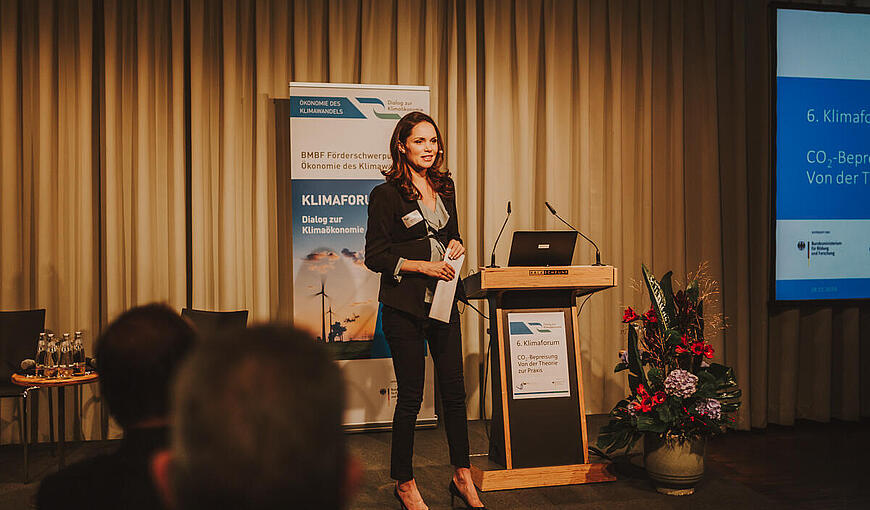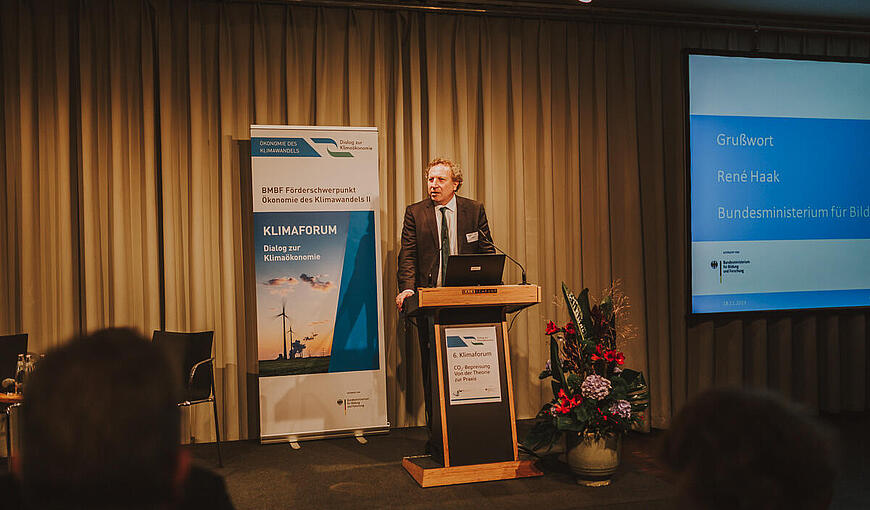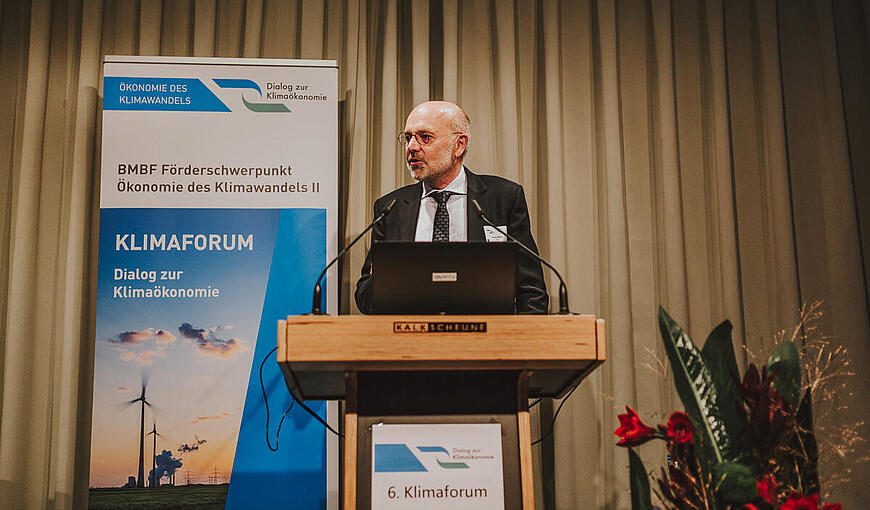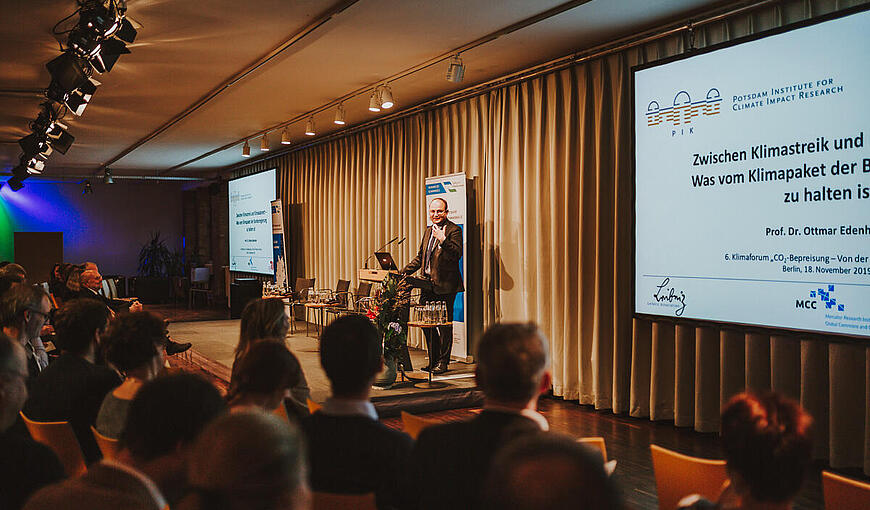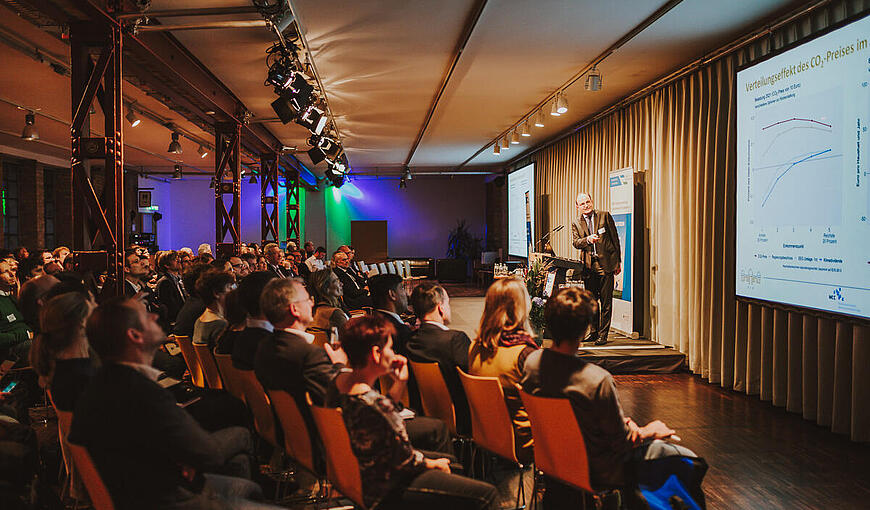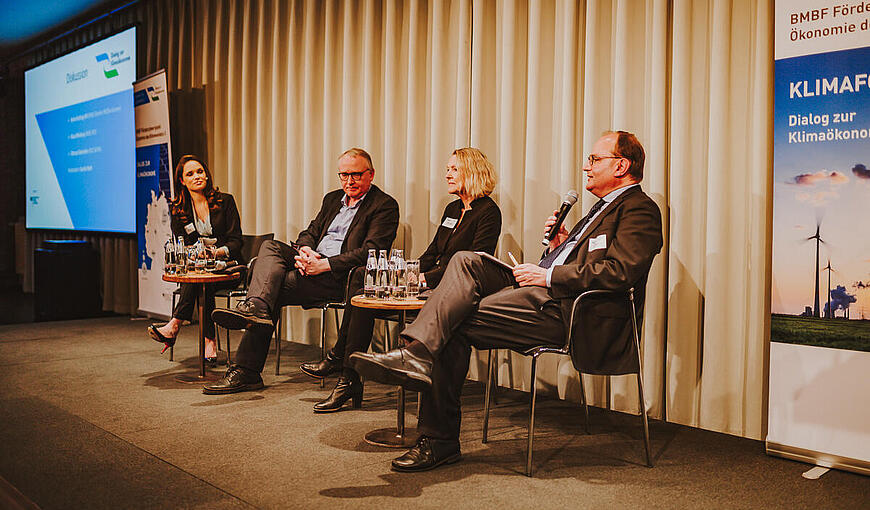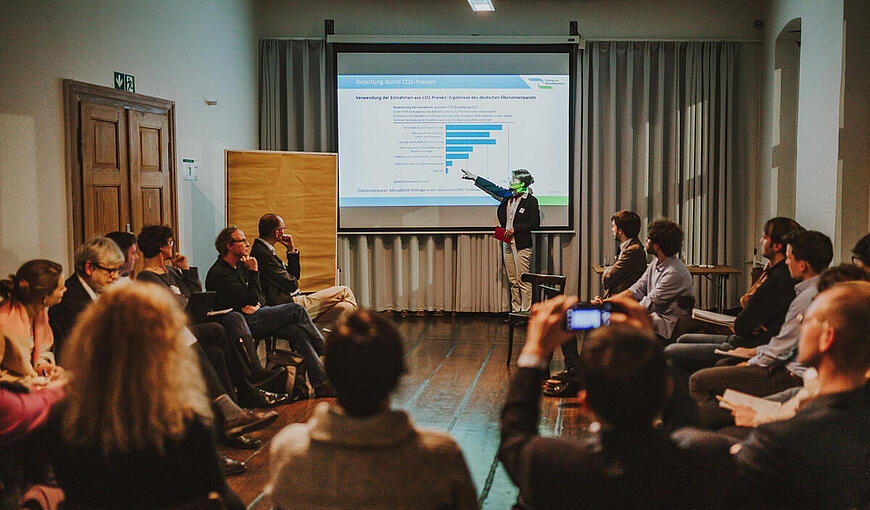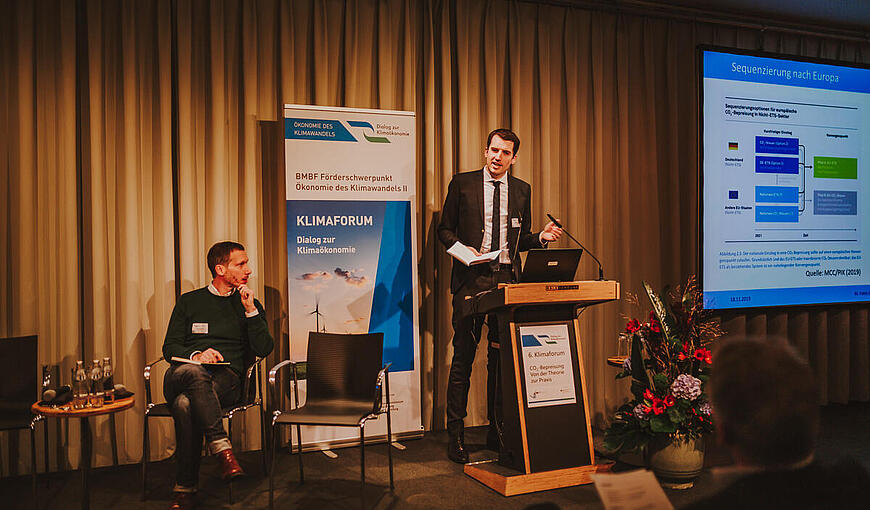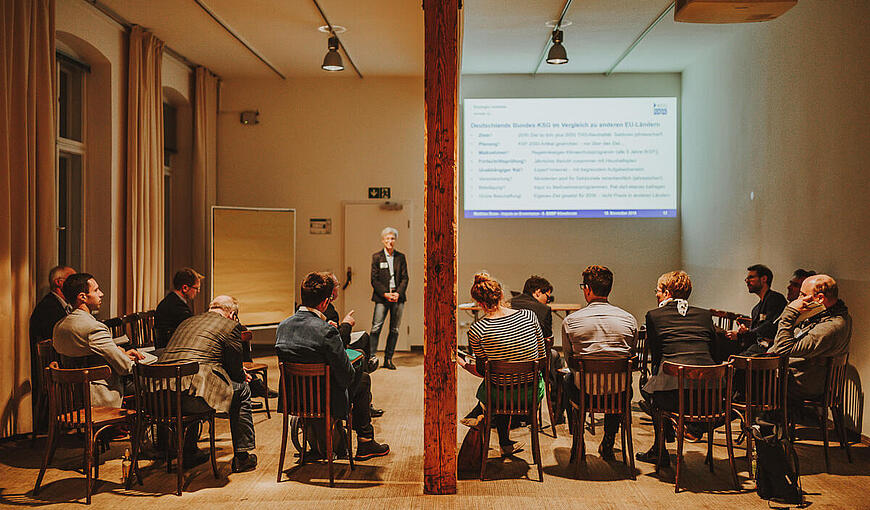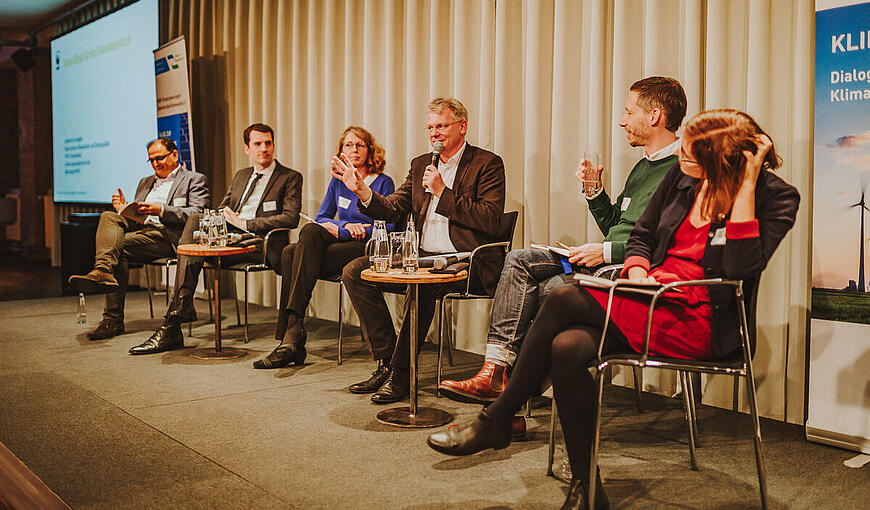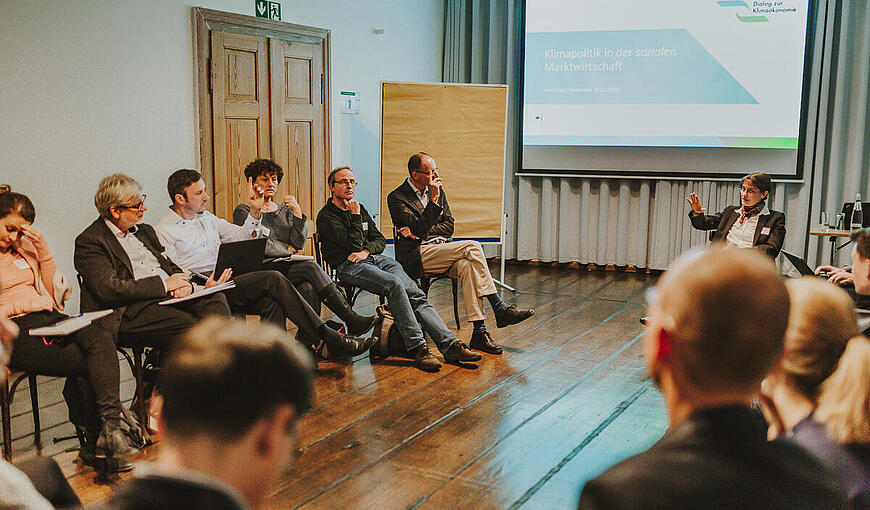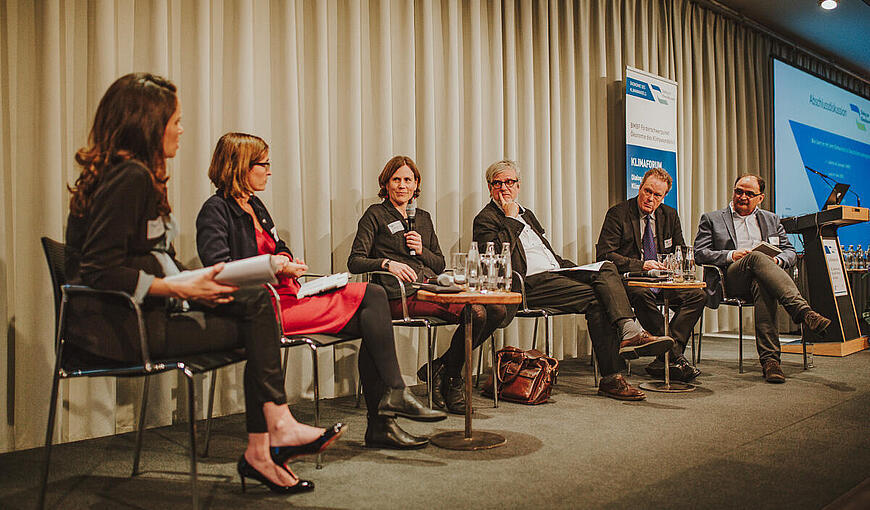Forum Climate Economics 6
Carbon Pricing – From Theory to Practice
Impressions from the forum

"CO2 pricing - from theory to practice" - this was the topic, of the Forum Climate Economics 6, which took place on November 18, 2019 in Berlin. Against the backdrop of the German government's Climate Protection Program 2030, more than one hundred invited representatives from politics, business and research discussed the CO2 pricing proposal contained therein. In an open, confidential exchange between the participants from very different backgrounds, two questions in particular took center stage: Which form of pricing is better - CO2 tax or emissions trading? And how can this be designed in a socially acceptable way?
On the question of whether a tax or an emissions trading system (ETS) should be used, the special report of the German Council of Economic Experts deliberately did not take sides - however, clear voices came out of the forum, particularly from the ranks of politicians and associations, in favor of a tax, as it would ensure price stability, unlike an ETS. On the other hand, an ETS would allow flexible adjustment to fluctuating oil and gas prices. The argument that a tax would be easier to introduce was countered by the fact that administrative problems would also arise here, as double taxation of companies in the EU ETS would have to be avoided. At the same time, however, it was emphasized that the introduction of an ETS would be a lengthy task, especially if the envisaged national system is to be incorporated into the EU ETS.
Ottmar Edenhofer (MCC & PIK) already fueled the discussion on social compatibility with his opening presentation: he showed that the planned subsidy programs and tax breaks in the German government's climate package mainly benefit wealthier households and do not compensate for the proportionally heavier burden of a CO2 price on low-income households. In contrast, a climate dividend - a flat per capita rebate - that would provide the greatest relief to low-income households is not included in the climate package.
In the ensuing discussion, however, the introduction of a climate dividend, as already exists in Switzerland, for example, was seen as rather difficult. On the one hand, there would be administrative hurdles in the concrete design, because a kind of payment agency would first have to be set up. The institutions that already exist in Germany, such as tax offices or social insurance funds, are not suitable, or only to a limited extent, either because they do not cover the entire population or because they are independent entities. Second, it is often assumed that the explicit reimbursement of a CO2 tax would strengthen its acceptance among the population and thus improve its political enforceability. Ortwin Renn (IASS), who, together with Juliette de Grandpré (WWF), Joachim Hein (BDI), Christoph Kühleis (German Emissions Trading Authority), and Sonja Peterson (IfW), chaired the concluding panel discussion, contrasted this assumption with results from surveys of the public, which showed that flat-rate reimbursement - i.e., also to the wealthy - was more likely to be rejected and that many survey participants felt that progressive electricity and heating prices were fairer.

There was broad consensus among the participants in the discussion that further reforms were needed beyond the climate package, for example an incentive-compatible restructuring of energy taxation.
At the same time, it was also emphasized that important foundations had been laid in the bill that would make it possible to take more far-reaching measures in climate protection. Many participants criticized the fact that the measures were not ambitious enough, that some of them were not yet concretely designed and that they were not coordinated with other support programs; this impaired the incentive effect and led to a heavier burden on middle-income earners compared to high-income earners.
There was agreement that national and European climate policy are closely interwoven and that the forthcoming tightening of ambitions at EU level will also mean that efforts at national level will have to be stepped up in the future. Industry representatives also expressed concern about the lack of planning certainty for the population and companies, as the concrete implementation of many points of the climate protection program and the effect it will have are still uncertain.
Whether a tax or an ETS and a reform of energy taxes or the introduction of a climate dividend would be administratively and politically easier to implement in each case and whether they would have the desired incentive effect - namely the reduction of CO2 emissions - remained an open question on this evening. However, it became clear how helpful the exchange of information and the discussion between the diverse social actors is in order to do justice to the complexity and the challenges in climate protection.
Pictures
-
-
-
-
-
-
-
-
-
Panel mit Klaus Mindrup (MdB), Sylvia Kotting-Uhl (MdB) & Ottmar Edenhofer (MCC & PIK), moderiert von Carolin Roth
-
-
Session: CO2-Preise für eine klimafreundliche Transformation der energieintensiven Industrien
-
-
Session: Klimaschutz in der sozialen Marktwirtschaft
-
Session: CO2-Bepreisung im Klimaschutzprogramm 2030 der Bundesregierung
-
Session: Governance der Maßnahmen des Klimaschutzpakets
-
-
-
Abschlussdiskussion: Carolin Roth, Juliette de Grandpré, Sonja Peterson, Ortwin Renn, Joachim Hein & Christoph Kühleis
Programme
Here you can find a PDF version of the programme for the Forum Climate Economics 6 (in German).
